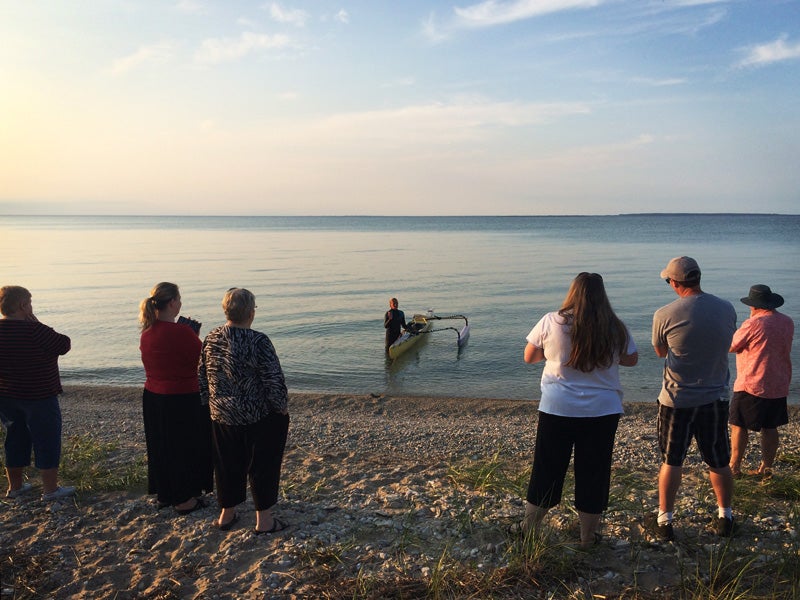Paddling the Waterways of America: An Interview with Margo Pellegrino
Margo Pellegrino has paddled from Newark, New Jersey to Lake Michigan in her outrigger canoe to raise awareness about the sorry state of America’s rivers and the urgent need for the Clean Water Rule.

This page was published 10 years ago. Find the latest on Earthjustice’s work.
This interview has been edited and condensed.
Until she was 9 years old, Margo Pellegrino was afraid to sit in a canoe. Luckily for the rest of us, the activist overcame her fear by age 12 and today is in the midst of a paddle from the Big Apple to the Big Easy, raising awareness along the way about the sorry state of America’s waterways.
Fifty-five percent of America’s waterways are in poor condition, unsuitable for swimming, drinking or fishing. One in three Americans drinks water sourced from waterways that were not protected before May 2015, when the Clean Water Rule was introduced. The EPA’s Clean Water Rule would go far toward saving America’s polluted rivers by ensuring protection of the streams with the greatest impact on downstream water quality.
The new rule is under attack in Congress. Earthjustice interviewed Margo on July 6 about her on-the-ground experience with our nation’s rivers and the importance of the Clean Water Rule.
Cate Johnson: When you’re paddling, how can you tell if a river is in trouble?
Margo Pellegrino: There have been plenty of times when I’ve paddled through horrifically dirty water. I see lots of trash in our waterways. I’ve paddled through toxic algae. Some algae, of course, occur naturally and are harmless, but there is this chunky, disgusting, slimy green kind that blooms when there’s an excess of fertilizer and agricultural waste pollution in the water. In a lot of the areas where I have paddled, like Oneida Lake and the Erie Canal, the water looked clear, but I have to wonder when I’m paddling through hosts of dead fish all over the place. One of the Erie Canal lock masters told me that the herring didn’t even reach his lock this year, which was a first for him—an indication that something is seriously wrong in that waterway.
CJ: How important are individuals in terms of river clean-up and the character of a river?
MP: I think that they’re immensely important. We also need legislation and strong regulations, but I don’t think this is a solo journey; it takes a lot of people who care, who take part and help out. I also think getting people active and outside is hugely beneficial to the waterways. If swimming were mandated across the country I don’t think that we would have the problems that we have (laughs).
CJ: What would you say to folks who oppose the Clean Water Rule?
MP: I would tell them to go drink from any number of our dirty waters to see how long they last and how much they like it. They need to realize that you need clean water to live. It’s a no-brainer. You need clean water to drink; you need clean water to swim in. No one wants to swim or play in dirty water. I really do think that getting people involved in their waterways is crucial.
CJ: What impact do you hope the Clean Water Rule has on some of the communities you’ve paddled through?
MP: I really hope that places like the Maumee River don’t see disgusting algae blooms. Last week, on Port Huron, five beaches were closed because of E. coli. Who knows what the source of that is? You really hope that people can drink their water, that they have no more scares. Last year, there was a horrible algae bloom and how many people couldn’t drink their water in Toledo and the Toledo area? I would hope that the Clean Water Rule would limit that and provide an improvement so people don’t have to be scared to drink their water.
CJ: What do you think is a realistic goal for river health in the United States?
MP: I hope people stop taking their water for granted, and I hope people get more active in speaking out. And I hope they look at their own behavior, what they can improve on and do in their lives—even buying organic with fewer pesticides and petrochemicals going into the land and getting into our waterways.